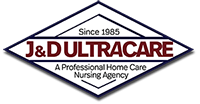
Being able to provide CPR and other methods of first aid is a necessary and revered skill that is required in many fields, from administration to lifeguarding to, most especially, the medical field. While these first aid skills are admired and sought after, over seventy percent of Americans fail to act during a first aid crisis because they either do not know how to perform CPR, or they do not remember their training, according to the American Heart Association. As one might imagine, the ability to perform CPR in the field of pediatric care is even more important and urgent. In fact, many expecting parents undergo training in infant CPR as part of their preparation for their new child. Pediatric first aid includes, but is not limited to: knowledge and training of CPR, the Heimlich Maneuver and other abdominal thrust procedures, and AED administration, as well as familiarity with common procedures such as those pertaining to burns, external bleeding, poison, and seizures.
When dealing with medically fragile children, the need for knowledge of pediatric first aid becomes even more imperative. First, and perhaps most importantly, nearly all CPR-related incidents happen in the domestic space, the domain of a medically fragile child. While children in general are more susceptible to choking hazards, medically fragile children often face addition obstacles. Some of these children have less control over their motor skills, including chewing, swallowing, etc. Additionally, more often than not, food and drinks are being administered to the child by a third party, leaving more room for error. As with any tool, administering technology can lead to complications that may require first aid to be performed. Finally, these children may be prone to seizures and other side effects as a result of a much more serious medical condition. Therefore, it is important for all caretakers, including parents, nurses, doctors, and other important parties, to be well-versed and confident in administering pediatric first aid, including CPR.
Nurses often receive pediatric training in their nursing education. However, as part of their screening, J&D Ultracare requires all nurses to be up-to-date on their training, and will not allow a nurse or other caregiver to enter a home without proper training. Additionally, J&D Ultracare is happy to provide information to families and other caregivers on where and how to receive pediatric first aid skills. We routinely hold training sessions on CPR and other skills. For more information on CPR and other pediatric first aid training, contact our office today!
